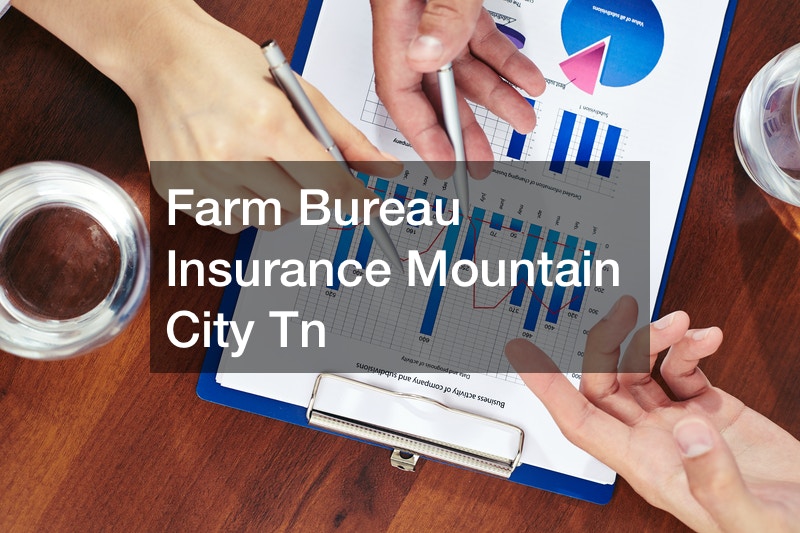
Being in a car accident can be a harrowing experience. Dealing with the inconvenience of it is the least of the issues you face. One of the first things you need to do, if you are able, is contact an auto accident lawyer.
Basically, a car insurance claim requests financial compensation for an individual after their car is damaged or injuries occur. Insurance companies pay in excess of $170 billion in car insurance claims each year. The insurance claim process varies between states and insurers, but the basic process is the same.
Essential Things to Know About Filing Car Insurance Claims
- When to file the claim depends on the cause and extent of the physical damage and injuries.
- Which insurance company to file a claim with depends on what or who caused the accident.
- To file a claim, call the insurance company to provide them with any documentation related to the accident.
- Depending on the circumstances and insurance company, car insurance premiums can be raised by an average of 12% to 45%.
When to File a Claim
You need to report the accident to your insurance company if you were injured or your car is damaged in the accident. The insurance claim process for each accident is different depending on the severity of the injuries or damage, who caused the accident, or what caused the vehicle damage if it wasn’t an accident.
The Insurance Claim Process Step by Step

- Contact your insurance company to report the accident as soon as possible. Write down the claim number you are given and the name and direct phone number of the person you spoke with. Provide them with the following information:
- Who was driving
- Which covered car was involved
- Time and location of the accident
- A basic description of the accident and severity of the damage
- The name of the other driver and his insurance information
- Names and contact information of witnesses and others involved in the accident
- File a police report because the insurance company will request a police report number. If you do not get a police report at the time of the accident, go to the local police station to file a report.
- The insurance company will assign an adjuster to your claim that you will need to follow up with. The adjuster will probably contact you for additional facts about the accident. Avoid speculation when describing the accident and stick to the facts. If you took photographs at the scene, provide them and the contact information of any witnesses. The conversation will be recorded to help determine who was at fault. If you are filing a personal injury claim with the other driver’s insurance company, contact a personal injury lawyer before getting to this step. The adjuster will inspect your vehicle’s damage or ask you to take the car to a certified repair shop to perform an inspection, in addition to gathering the pertinent information.
- The adjuster will evaluate and consider the facts of the accident and your policy, inspect the damage, and potentially make an initial payment.
- The adjuster will authorize the final payment, you will sign a release accepting the payment as full, and the case is resolved. Procedures will vary depending on your state and insurance company.
How Does Fault Impact the Claim?
It matters who was at fault for an accident. That driver’s insurance coverage will be responsible for the losses. Here are some things to know about how fault is determined.
- Adjusters will determine fault. The adjusters from each company will consider each driver’s statements and any witnesses and other evidence that may exist to decide who is at fault.
- Sometimes the fault is shared. Suppose you are found to have contributed to the accident in a small way. In that case, the amount you can potentially recover from the other driver’s insurance company could be reduced proportionally.
- Suppose the insurance claim process reveals you are at fault and sued by the other driver in a personal injury case. In that case, you will be represented in court by your insurance company and any legal counsel you have retained, like a speeding lawyer. For example, they will help the negotiations to determine a fair settlement. If you have caused an accident because
- If the insurance claim process determines the other driver is at fault because of a DUI, for example, you will need to deal with the other driver’s insurance company. You may be able to get help and advice from your insurance agent or company. Still, ultimately you will file a claim with the other insurer and receive coverage under that driver’s policy.
- If the other driver’s insurance company is reluctant to compensate you or not moving in a timely fashion, you may want to obtain your own auto accident attorney.
Getting Your Car Repaired

Part of the insurance claim process involves getting your car repaired. Your insurance company will provide you with instructions in detail for getting your vehicle repaired. Ensure the adjuster inspects your car before getting it fixed unless waiting leads to more damage.
You can choose your own repair shop. You will have the final say in the parts that are acceptable for your car. But sometimes taking the insurance company’s advice will save you money and time.
If you are not happy with how the insurer is handling your claim, there are options moving forward. You can contact the company directly to appeal any decisions you disagree with. If you feel they are acting in an unethical manner, report them to your state’s insurance regulator. To help settle the dispute, retain a law firm.
Medical Care
You must prioritize your health after a car accident. Do not avoid treatment for your injuries, which could lead to medical complications or disability later on.
Many health care providers will bill the car insurance company directly. In some cases, as part of the insurance claim process, you will need to submit the medical bills to the insurance company to get reimbursed.
If another driver causes your injuries, contact an attorney to represent you in an injury claim. A personal injury attorney will offer a consultation for free and represent you and get paid only if your claim is won.
You should file an insurance claim when you cannot afford to pay for medical bills or damages that your insurance policy will cover. You should pay out of pocket instead of filing an insurance claim if the repairs or medical bills caused by an accident in which you were at fault will cost less than your deductible. For example, it may be to your advantage to pay for a minor mishap yourself if the accident was your fault or if you have filed a claim recently.
Your claims history is critical because the more claims you file, the more risk you are to the insurance carriers. You could see higher premiums or cancellation of your policy.
When to Consider Paying Out of Pocket
- You have collision insurance or comprehensive, and there is only minor damage to your car.
- Repairs cost less than your deductible.
- You have recent tickets or claims on your driving records.
When Should You File an Insurance Claim
- There is significant property damage that will cost more than your deductible to repair.
- There are injuries to yourself or someone else in your vehicle.
- Other vehicles were involved in the accident.
- You have accident forgiveness on your policy.
Remember that if you are in an accident, you need to notify your insurance carrier whether you are paying out of pocket yourself or if you plan on filing a claim. Major insurance companies require customers to report all accidents regardless of size.
The insurance claim process states you should file a claim with the at-fault driver’s insurance carrier if the accident is not your fault. Hence, it pays the portion of any property damage or medical bills you incurred in the accident. How much the at-fault driver’s insurance provider pays depends on the driver’s state and his policy limits.
Tips to Remember
- The insurance claim process states that an accident should be reported “promptly.” Reporting accidents as soon as possible helps to make sure all necessary details of the accident are recorded. But you do not immediately have to file a claim after reporting the accident. Different states have different laws regarding how long residents have to file an auto insurance claim. Typically it is between one and three years.
- Uninsured motorist (UIM) claims occur when the at-fault driver has no car insurance. The claim is filed with your car insurance provider. The UIM insurance claim process can take some time because it involves two different insurance providers and policies. That is why it is vital to file the claim as soon as possible to expedite the process.
- Notify your insurance provider of the accident
- File a claim through the at-fault driver’s liability insurance
- File a claim for the remaining through your UIM policy
- There is an insurance claims history report of all the car insurance claims a driver has filed over the last five to seven years. Most car insurance companies will check this report prior to issuing a policy to minimize their risk.
- Insurance companies share this information using databases containing claims from almost 100% of the car insurance companies. Insurers can then check a driver’s claims history. This claims history information is essential to insurance companies because driver’s with a record of many claims, especially at-fault claims, represent a greater risk to the insurance companies.
- The database of insurance companies is the equivalent of credit reports in the financial industry. They provide a centralized location for the records of a driver’s history. The insurance company uses this information to determine the premium amount to charge the individual driver. But this history is just one factor that goes into determining your premium. Insurance companies also consider characteristics such as vehicle information, location, age, and driving record.
How to Settle a Vehicle Accident Without an Insurance Company

To settle an accident without an insurance company, an agreement needs to be made with the other driver on how to proceed. You will then work with them privately to fix any damage to the vehicle. It is rarely a good idea to settle a car accident without an insurance company and should only be considered if the accident was a minor fender bender.
You should not attempt to settle the incident privately if there is any question about fault or if the other driver chooses not to cooperate. If you were to finalize an agreement privately with the other party and sign the wrong document in the process, you might be unable to file a claim against that driver in the future.
Here are a few pointers on how this should be handled.
- Exchange contact information with the other party.
- Take photos to document the damage to your car.
- Make sure you file a police report.
- Report the accident to your insurance company. This is not the same as filing a claim but will give you the option of doing so in the future.
- Get a quote from a car repair shop.
- Make sure you document all communication and financial transactions.
- Draft a legally binding agreement with the other party addressing fault and agreeing on a final amount to settle on.
Even if you do not intend to file a claim, your insurance company will require you to report the accident as soon as you can. Damage to a vehicle is often more severe than it looks at first. If you do not tell the insurance company about the accident and your agreement with the other party falls through, you may not be able to present a claim to your insurance company later. Also, if you are at-fault and the other driver files a claim, your insurance provider may prevent you from getting coverage completely.
Remember, the goal of the other insurance company’s adjuster is to spend as little money as possible. That is why it is critically important to document the accident thoroughly and be completely honest about your injuries and all facts relative to the accident, in case they downplay your losses.
The insurance claim process can be straightforward if you handle it correctly. If you feel legal help is needed, contact a personal injury attorney, truck accident attorney, or any legal assistance to ensure you get the fair compensation you desire and deserve.



